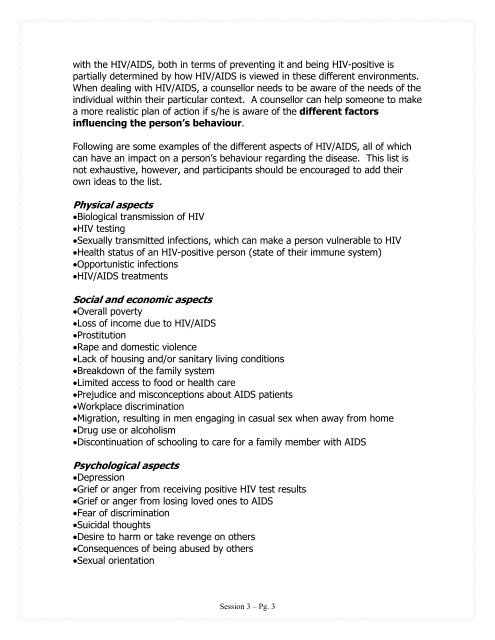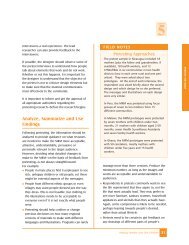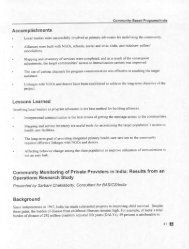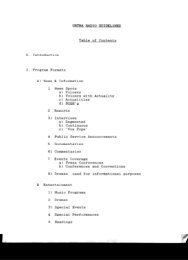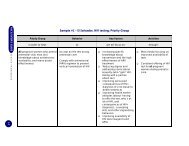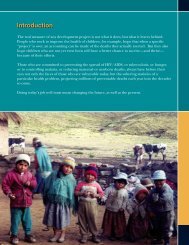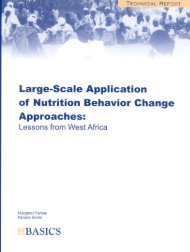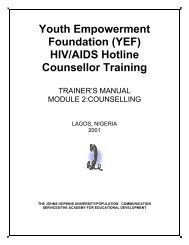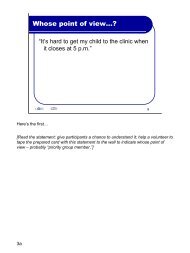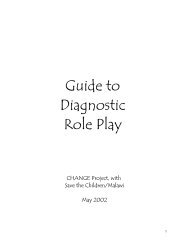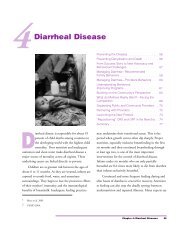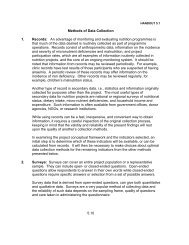MODULE TWO: COUNSELLING - FHI 360 Center for Global Health ...
MODULE TWO: COUNSELLING - FHI 360 Center for Global Health ...
MODULE TWO: COUNSELLING - FHI 360 Center for Global Health ...
Create successful ePaper yourself
Turn your PDF publications into a flip-book with our unique Google optimized e-Paper software.
with the HIV/AIDS, both in terms of preventing it and being HIV-positive is<br />
partially determined by how HIV/AIDS is viewed in these different environments.<br />
When dealing with HIV/AIDS, a counsellor needs to be aware of the needs of the<br />
individual within their particular context. A counsellor can help someone to make<br />
a more realistic plan of action if s/he is aware of the different factors<br />
influencing the person’s behaviour.<br />
Following are some examples of the different aspects of HIV/AIDS, all of which<br />
can have an impact on a person’s behaviour regarding the disease. This list is<br />
not exhaustive, however, and participants should be encouraged to add their<br />
own ideas to the list.<br />
Physical aspects<br />
•Biological transmission of HIV<br />
•HIV testing<br />
•Sexually transmitted infections, which can make a person vulnerable to HIV<br />
•<strong>Health</strong> status of an HIV-positive person (state of their immune system)<br />
•Opportunistic infections<br />
•HIV/AIDS treatments<br />
Social and economic aspects<br />
•Overall poverty<br />
•Loss of income due to HIV/AIDS<br />
•Prostitution<br />
•Rape and domestic violence<br />
•Lack of housing and/or sanitary living conditions<br />
•Breakdown of the family system<br />
•Limited access to food or health care<br />
•Prejudice and misconceptions about AIDS patients<br />
•Workplace discrimination<br />
•Migration, resulting in men engaging in casual sex when away from home<br />
•Drug use or alcoholism<br />
•Discontinuation of schooling to care <strong>for</strong> a family member with AIDS<br />
Psychological aspects<br />
•Depression<br />
•Grief or anger from receiving positive HIV test results<br />
•Grief or anger from losing loved ones to AIDS<br />
•Fear of discrimination<br />
•Suicidal thoughts<br />
•Desire to harm or take revenge on others<br />
•Consequences of being abused by others<br />
•Sexual orientation<br />
Session 3 – Pg. 3


